
 Attempting Normal
Attempting Normal
By Marc Maron; Read by Marc Maron
Publisher: Random House Audio
5 hours, 34 minutes [UNABRIDGED]
Themes: / memoir / comedy / humanity /
Publisher summary:
People make a mess.
Marc Maron was a parent-scarred, angst-filled, drug-dabbling, love-starved comedian who dreamed of a simple life: a wife, a home, a sitcom to call his own. But instead he woke up one day to find himself fired from his radio job, surrounded by feral cats, and emotionally and financially annihilated by a divorce from a woman he thought he loved. He tried to heal his broken heart through whatever means he could find—minor-league hoarding, Viagra addiction, accidental racial profiling, cat fancying, flying airplanes with his mind—but nothing seemed to work. It was only when he was stripped down to nothing that he found his way back.
Attempting Normal is Marc Maron’s journey through the wilderness of his own mind, a collection of explosively, painfully, addictively funny stories that add up to a moving tale of hope and hopelessness, of failing, flailing, and finding a way. From standup to television to his outrageously popular podcast, WTF with Marc Maron, Marc has always been a genuine original, a disarmingly honest, intensely smart, brutally open comic who finds wisdom in the strangest places. This is his story of the winding, potholed road from madness and obsession and failure to something like normal, the thrillingly comic journey of a sympathetic f***up who’s trying really hard to do better without making a bigger mess. Most of us will relate.
It seems like most people spend all their time cultivating various masks to hide behind, but Marc Maron has made a business out of taking his off, and getting professionals in artistic fields from comedy to film and music to do the same. His trick is to reveal his own flaws and past mistakes and make people feel OK about being human so they can relax and open up too. This is why his WTF podcast is so popular, and why he has such a loyal fan-base, and why his interviews are some of the most interesting out there.
In Attempting Normal, he says that one of the beliefs that shaped his life is that “People want to share but they usually don’t” – because they are afraid they will be judged, or seem weak, or out of fear that others won’t have the capacity to carry the burden of what they have to say. In his book, Maron says, “But all that stuff is what makes us human; more than that, it’s what makes being human interesting and funny. … We’re built to deal with shit. We’re built to deal with death, disease, failure, struggle, heartbreak, problems. … The way we each handle being human is where all the good stories, jokes, art, wisdom, revelations and bullshit come from.”
His book is a collection of autobiographical stories about how he has personally handled being a fallible human. He talks about his mistakes, drug problems, neurotic episodes and failed marriages, and he describes odd encounters with creatures such as hookers, stray cats, comedy road pirates, and Conan O’ Brian. What links all his stories together is that universal story plot: humans, who are really weird, get themselves into shit, deal with it, and climb back out. It’s a book about accepting the darkness and pain, struggling through, and keeping hope. It also has some profound wisdoms: “Bedtime is the worst time to start an argument because all the drama unfolds while you are wearing your underwear. Being angry in your underwear is a hard thing to pull off.”
It’s always awesome to hear people telling their own stories, but Maron’s narration is particularly good as he has beautiful timing and an open, free-flowing style thanks to years of working as a stand-up comic. He also has that hard-edged vulnerability that pro-comedians learn to do so well.
One of the things I appreciate about him, and which comes across heavily in this book, is that he loves the art of comedy not just as a form of entertainment but for its role in society: a way for people and for the culture to release tension. He says comedians are “like all artists, masters of the mathematics of relief.”
I also really dig his empathy for the human condition. He’s a dark character, but he has built up this amazing understanding of humanity that he uses to draw people out in interviews and to reflect on his own experiences. I learned from this book where it comes from: he has an insatiable curiosity for information about human psychology and philosophy, and even though he claims his obsessive collecting of books (from Plato and Spinoza to Hunter S.) is mostly pointless, I think it’s what gives him that ability to see the deeper truths in any situation.
“I can’t read anything with any distance. Every book is a self-help book to me. Just having them makes me feel better. I underline profusely, but I don’t retain much. Reading is like a drug. When I’m reading from these books it feels like I’m thinking what is being read, and that gives me a rush. That is enough. I glean what I can. I finish some of the unfinished thoughts lingering around in my head by adding the thoughts of geniuses, and I build from there.” (Mark Maron)
This isn’t a book about a huge celebrity or particular topic – it’s just an honest and humble conversation about how we’re kinda weird, kinda funny, and in the end only human.
Posted by Marissa van Uden
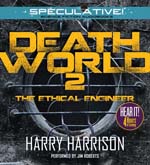 Deathworld 2: The Ethical Engineer
Deathworld 2: The Ethical Engineer Oz Reimagined
Oz Reimagined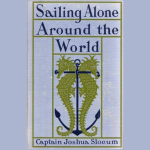
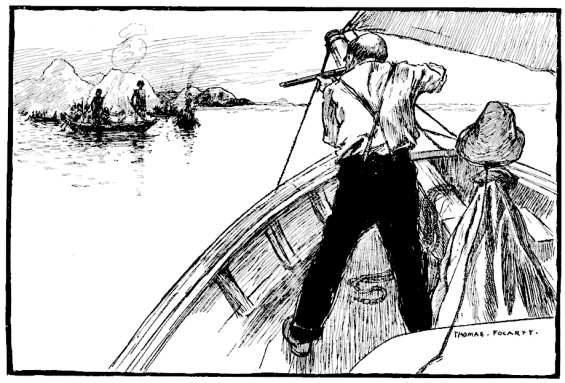
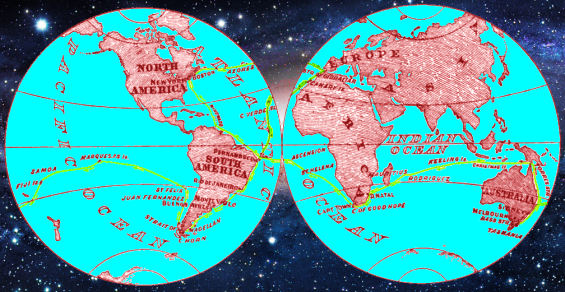
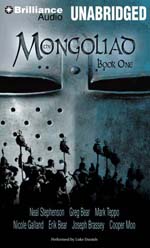 The Mongoliad: Book One (Foreworld Saga #1)
The Mongoliad: Book One (Foreworld Saga #1) The Stand
The Stand